Groups
-
adminposted in News & Trends • read more

Buhari in MaiduguriBy Hamza Suleiman
President Muhammadu Buhari has arrived Maiduguri as part his one-day official visit to Borno to inaugurate a 50-Megawatts Power Plant and other viable projects executed by the state government.
The News Agency of Nigeria (NAN) reports that the presidential jet landed at the Nigerian Air Force wing of the Maiduguri International Airport on Thursday at about 11:10 a.m.
Buhari was received on arrival by Gov. Babagana Zulum, members of National and State Houses of Assembly, and some top government officials.
Other dignitaries that received the president were the Theatre Commander, North East Operation Hadin Kai (OPHK), Maj.- Gen. Ibrahim Ali, Heads of security agencies, community and religious leaders.
NAN reports that the president is expected to inaugurate the new 50-megawatts Maiduguri Gas Power plant constructed by the Nigerian National Petroleum Company Limited (NNPCL).
He will also commission the Ahmadu Bello Way, Shehu Sanda Kyari, Lafiya and Mogoram Roads, before proceeding to the Maiduguri Monday Market gutted by fire recently.
Buhari would be conducted round the scene by the General Manager of the market, Mustapha Loskorima.
The President will also inaugurate the Cancer Center at the University of Maiduguri and the newly constructed Tashan Bama Motor Park, consisting of 475 shops and an administrative complex. (NAN)(www.nannews.ng)
==================
Edited by Chidi Opara/Rabiu Sani-AliSource: NAN News
-
adminposted in News & Trends • read more
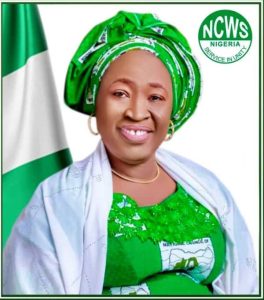
NCWS National President, Hajiya Lami LauBy Dorcas Jonah
National Council of Women Societies (NCWS) has congratulated the President-elect, Sen. Bola Tinubu, on his victory at Saturdays Presidential election, calling for an all-inclusive government.
NCWS National President, Hajiya Lami Lau, in a statement issued in Abuja on Tuesday, also congratulated the Vice-President-elect, Sen. Kashim Shettima.
She urged individuals and political parties that were not satisfied with the election results not to take laws into their hands but seek redress in the court of law.
Lau said that an all-inclusive government was crucial to nation building and transformation of the country.
She also said that increased participation of female technocrats in politics would go a long way in repositioning the country for greatness.
Lau called on the president-elect to recognise the role of women in nation-building by giving them more opportunities in governance.
If more women are given the opportunity to serve in various government positions, they will bring hope back to the masses and the society will benefit.
There cannot be any meaningful development without an all-inclusive government of women, youths and persons with disabilities.
More women are needed in government, as they are the most-productive part of the society, she said.
The NCWS national president commended women and youths for coming out en masse to vote for the candidate of their choice in the just-concluded presidential and national assembly elections.
She urged them to repeat same in the March 11 governorship and House of Assembly elections, saying that they should focus more on female candidates.
Lau also stressed the need for peace as a tool for national development. (NAN)(www.nannews.ng)
==========
Edited by Wale SadeeqSource: NAN News
-
adminposted in News & Trends • read more

Supporters jubilate in carnival manner as Tinubu receives Certificate of ReturnBy Muhyideen Jimoh
Major streets in the FCT erupted into carnival-like celebrations on Wednesday as Sen. Bola Tinubu received his Certificate of Return as the president-elect from INECs chairman, Prof. Mahmood Yakubu.
Shortly after the ceremony which took place at the International Conference Centre, Abuja, supporters of the president-elect went into a frenzy of jubilation around Garki Area 1 shopping complex.
The supporters drove in colourful motorcade hoisting the posters of Tinubu and that of Alhaji Kashim Shettima, the vice-president-elect.
They performed various car stunts on major streets while chanting Jagaban.
Malam Abubakar Mohammed, one of the supporters said they were happy Tinubu won the keenly-contested election.
Jagaban is a good man; we are happy that he won the election, he said.
Mohammed, however, called on the president-elect to focus on improving the lives of the masses.
Another supporter, Malam Nura Ismail said the victory was for all Nigerians and charged the president-elect to improve on the economic and security situation in the country.
This celebration is to thank Allah for the victory of Jagaban (Tinubu) at the polls; we urge him to improve on the economic and security situation when he is sworn in, he said.
Tinubu of the All Progressives Congress (APC) polled 8,794,726 votes to win the 2023 presidential election. He defeated Alhaji Atiku Abubakar of the Peoples Democratic Party and Mr Peter Obi of Labour Party to emerge victorious. (NAN) (www.nannews.ng)
=========
Edited by Alli Hakeem
Source: NAN News
-
adminposted in News & Trends • read more
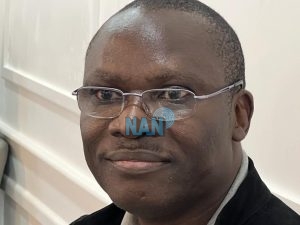
Prof. Olalekan AkinboBy Sylvester Thompson
Prof. Olalekan Akinbo, Scientist and Supervisor at Centre of Excellence in Science, Technology and Innovation (STI), African Union Development Agency (AUDA-NEPAD), says Genome Editing (GEd) technology is useful to Africa.
Akinbo spoke in a telephone interview with the News Agency of Nigeria (NAN) on Wednesday.
He clarified that Genome Editing (GEd) and Genetically Modified Organisms (GMO) were not the same in principle.
Making this distinction, he said GMO could apply Deoxyribonucleic Acid (DNA) information from another plant or animal to form a crop, while GEd had nothing to do with external applications.
Akinbo explained that in GEd, all what was needed was already inside the plants DNA, hence the idea was to use the inherent information to assist the plant realise its potential.
He stated that this was known as redundant DNA which GEd technology would help to activate.
The scientist, who was responding to why African countries should take GEd seriously, argued that it was an emerging technology with new innovations that help in various areas of improvements.
He listed these areas to include climate, agriculture and health among others, adding that the technology is also a means of improving livelihoods.
Akinbo said the technology of GEd was an initiative the centre advocated with focus on agricultural productivity.
According to him, numerous crops have the potentials to produce optimally but due to the limitations caused by diseases, pests and nutrient insufficiency in the soil, among others, they failed to optimally produce.
Akinbo said in such cases, crops with these shortcomings were not to be exposed to conventional breeding techniques where the parental characteristics could not be passed from one generation to another for enhancement in yields.
He added: But when the limitation is removed through genome editing which uses advanced breeding technique, then the potential of the crop would be enhanced and productivity in regards to yield will improve.
This is the most important thing because Africa is an agrarian continent that relies more on agriculture and most of agricultural productivity is very low due to pest, diseases among other inhibiting factors.
Akinbo lamentedthat the standard of Africas agricultural productivity was low in comparison to what is required or expected in international standards of crop yield and output.
He said through GEd technology, Africas crop yield and agricultural output would be improved and maximised, which would automatically impact on the Gross Domestic Products(GDPs) of African economies.
He assured that with GEd, instead of cultivating massive hectares of land for less yield as what was experienced in conventional breeding, a reduced area of land would ensure tremendous yield.
The scientist further said that GEd was helpful in addressing issues relating to climate change because there would be significant afforestation that would be going on.
He said: Africans need food to feed the teeming population, so yield may not need to be one hundred per cent farming with improvement in efficiency and productivity scale.
So, this technology could also help to improve and support the productivity of crops, with reduced area of cultivated land and provide enough feed for animals as well as increase their meat productivity.
Akinbo stated that emerging technologies were numerous but genome editing was one that made use of the technology at the DNA level, which is the information carrier in the body of any living organism.
He said that this was very important as this was one of the advantages of the technology.
Akinbo added: The truth is that science has proven that this technology will help African nations.(NAN)()
============
Edited by Bashir Rabe Mani
Source: NAN News
-
adminposted in News & Trends • read more
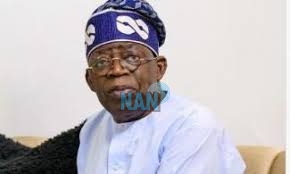
Bola TinubuBy Chijioke Okoronkwo
Vice President Yemi Osinbajo has congratulated the winner of the 2023 presidential election, Sen. Bola Tinubu.
Osinbajo extended his felicitations in a message he sent to the President-elect on Wednesday in Abuja.
The Independent National Electoral Commission (INEC) had earlier on Wednesday declared the presidential flag bearer of the All Progressives Congress (APC), Tinubu, winner of the Feb. 25 presidential election.
INEC has also presented the Certificates of Return to Tinubu, and his Vice President elect, Kashim Shettima.
I warmly congratulate the flagbearer of our great party, the APC, Tinubu, on his victory at the 2023 Presidential Elections, and his declaration as President-Elect of the Federal Republic of Nigeria.
I also congratulate Sen. Shettima on his declaration as Vice President-Elect of the Federal Republic of Nigeria.
In your previous years of public service, you have demonstrated a consistent fidelity to progressive and welfarist ideals, and an ability to build bridges across several divides.
These attributes are needed especially at this time, to reach out to disaffected sections of our society and to meet the aspirational expectations of our young people who have shown such a strong desire to impact our democratic process in a positive way.
I trust that they will not allow whatever setbacks they may have experienced to truncate their strong desire to determine the future course of our national journey.
Through thick and thin, we must all remain focused on the objective of birthing the Nigeria of our dreams.
I pray that Almighty God will help you to fulfil the progressive mandate of our Party, as well as your various plans to improve the security, welfare and happiness of all Nigerians, he said.
Earlier, while presiding over the weekly Federal Executive Council, the vice president led the ministers to congratulate Tinubu, his wife, Sen. Oluremi Tinubu and the Vice President-Elect, Shettima.
He directed the Secretary to the Government of the Federation to formally convey the felicitations of the council.
The vice president had also attended the formal presentation of the INEC Certificates of Return to both the President-Elect and the Vice President-Elect at the National Collation Center, International Conference Centre, Abuja.(NAN)
===
Edited by Ismail Abdulaziz
Source: NAN News
-
adminposted in News & Trends • read more
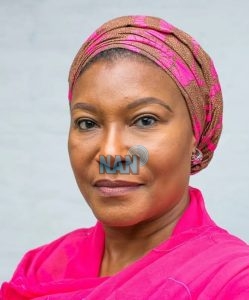
By Angela Atabo
The FCT Senatorial Candidate of the Labour Party (LP), Hajia Ireti Kingibe, on Monday rejected the cancellation of the Bwari Area Council election results.
The News Agency of Nigeria (NAN) reports that the Independent National Electoral Commission (INEC) had canceled the senatorial results for Abaji and Bwari due to over voting.
Kingibe, while addressing Journalists in Abuja said that there was no over voting in Bwari Area Council, therefore, the cancellation was uncalled for.
According to her, a mistake in the tabulation of results should not affect the victory of a candidate.
She said she was told that the person that wrote the figure made a mistake whether knowingly or unknowingly, and the person put two plus two equals to five.
She added that the official now referred to the mistake as over voting.
She said that the Electoral Officer (EO) said it was an error from the person that wrote the results whether he did it on purpose or accidentally, was not clear.
All the results sheets show there was no over voting in any of the polling units. So, why cancel the result of the entire area council? We have watched them.
They have been looking for a reason to cancel all our strongholds and suddenly, they found an error and that cant stand.
They said it is not their job to look at the results sheets on over voting. We have had enough.
They said we should go to the polls, they want to impose people on us, it will not work. The way this country is going, weve had enough.
Earlier, Ireti had called on her supporters to keep calm over the delay in the announcement of election results, saying the margin is too high for manipulation.
Ireti said the delay in the announcement of the FCT Senatorial election was as a result of violence recorded during the election. (NAN)(www nannews.ng)
Edited by Grace Yussuf
Source: NAN News
-
adminposted in News & Trends • read more
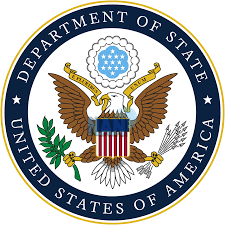
On No-Interview Visa Renewal, it said:
You are physically present in Nigeria;
If you are qualified based on the above criteria, visit https://www.ustraveldocs.com/ng to start
your application.Please note that processing times for the program are expected to be up to two months and
you will not be able to retrieve your passport during that time.Each applicant must individually meet the criteria; minors can apply without an interview only if
they meet the eligibility criteria on their own.On Emergency Appointments, it said: If you have a life-or-death emergency, you may request an expedited, in-person interview;
However, to accommodate No-Interview Visa Renewals, appointments will be very limited.
Business travel, conferences, weddings, and graduations are not considered emergencies.
If you have an emergency and need to travel immediately, please follow the guidance provided at
https://www.ustraveldocs.com/ng or 234-1-227-8955 to request an emergency appointment.The Mission alerted that third parties unaffiliated with U.S. Embassy Abuja and Consulate General Lagos
might seek to take advantage of various visa services to target visa applicants with fraudulent
offers or claims.It advised applicants to fill out their own forms and make their appointments themselves via the
official websites.As future opportunities for Interview Waiver appointments become available, they will be
communicated via our website.Remember to rely on information only from genuine sources: https://travel.state.gov,
https://ng.usembassy.gov/visas/, and https://www.ustraveldocs.com/ng.Avoid becoming the victim of a scam!, the U.S. Mission advised. (NAN) www.nannews.ng
Source: NAN News
-
adminposted in News & Trends • read more

By Diana OmuezaThe Cleen Foundation, an NGO, has lauded the conduct of the Nigeria Police and other law enforcement agencies during the general election held on Saturday.
The elrection was held to elect the President and Vice President and members of the Senate and House of Representatives.
Mr Peter Gad, Executive Director of the foundation gave the commendation while addressing newsmen on the foundations preliminary report on the conduct of security agencies in the elections.
Gad also urged the electorate to remain peaceful to the end of the entire electoral process.
He said from reports so far received from the foundations observers in senatorial districts across the country, the elections appeared to have gone according to the standards for democratic elections to which Nigeria had committed itself.
We deployed roving observers in the 109 Senatorial Districts and our preliminary reports indicates that, inspite some reported delays, the elections appear to be going on according to the standards for democratic elections.
The 109 trained INEC accredited observers liaised with a sizable number of citizen observers across the country covering the 109 senatorial zones in Nigeria.
They reported that the elections commenced early in most polling units before 9:00 am, however in Kogi, Ebonyi, Imo, Enugu, and Abia States observers reported delays due to late arrival of INEC staff and voting materials.
While in Delta, Ebonyi, Imo, Ondo, and some part of Lagos State, late arrival of security personnel were reported in some polling units, he said.
Gad said that in spite of the late arrivals of security, data gathered showed that over 80 per cent of the polling units had at least two or more security agents.
He added that almost all the polling units observed security agents were wearing easily visible and identifiable name tags and they were civil and approachable.
According to him, observers across the states reported that they felt safe and secure at the polling units.
Our observers reported that security personnel in the polling units visited acted professionally and impartially towards the voters.
The security personnel were of good conduct at the various polling units, he said.
The director said that most of the Bimodal Voter Accreditation System (BVAS) functioned reasonably well, except in few cases where the machines for different polling units were mixed up.
The BVAS machine that was meant for a different unit was deployed to Polling Unit 004, Ward Dan Mangu Zodu, in Bassa LGA in Plateau State.
Again our observer in Polling Unit 012, llesha Ward, Baruten LGA in Kwara State reported that the BVAS thumbprint failed to capture any registered voter as at 10:50 am.
However, in all, the elections appear to have gone according to the standards for democratic elections to which Nigeria had committed itself, he said.
Gad said that the group was still compiling reports from across various polling units and would disseminate a more elaborate post election report to the public in due time. (NAN)(www.nannews.ng)
Edited by Sadiya Hamza
Source: NAN News
-
adminposted in News & Trends • read more
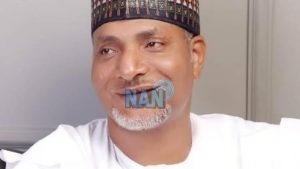
Malam Saliu Mustapha, a Senatorial candidate of the All Progressives Congress (APC) in Kwara Central, has been declared winner of Saturdays election.Prof. Abdullahi Abubakar, Returning Officer for the Senatorial Election in Kwara Central, announced Mustapha, early Monday morning, as the winner, having satisfied the requirements of the electoral law.
Abubakar said that Mustapha polled 109,823 votes against his close rival, Malam Bolaji Abdullahi of the Peoples Democratic Party (PDP), who polled 69,202 votes.
Also, Mr Apaokagi Salahuddin of the Social Democratic Party (SDP), polled 13,193 to come third in the keenly contested election.(NAN) (www.nannews.ng)
Edited by Olagoke OlatoyeDD/Website
-
adminposted in News & Trends • read more
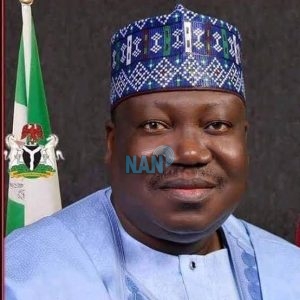
By Nabilu BalarabeSen. Ahmed Lawan of the All Progressives Congress (APC) has won the Yobe North Senatorial District election in Yobe.
Declaring the results in Gashua on Monday, the Returning Officer, Prof. Omolala Aduoju of Federal University, Gashua, said Lawan scored 91,318 votes.
Having satisfied the requirements of the law and scored the highest votes, Alhaji Ahmed Lawan of the APC is hereby declared the winner and returned elected, she said.
She said Lawans closest opponent, Sheriff Abdullahi, of the Peoples Democratic Party (PDP) came second with 22,849, while the New Nigerian Peoples Party (NNPP) candidate, Alhaji Garba Umar, scored 7,210 votes.
Aduoju said Action Democratic Party (ADP) scored three votes even though the party did not field a candidate in the election.
The total votes cast in the election is 126,677 out of which 122,136 were valid and 4,541 votes rejected, she said.
The News Agency of Nigeria (NAN) reports that the district comprises of Machina, Nguru, Bade, Karasuwa, Jakusko and Yusufari Local Government Areas.(NAN)(www.nannews.ng)
Edited by Sadiya Hamza
Source: NAN News